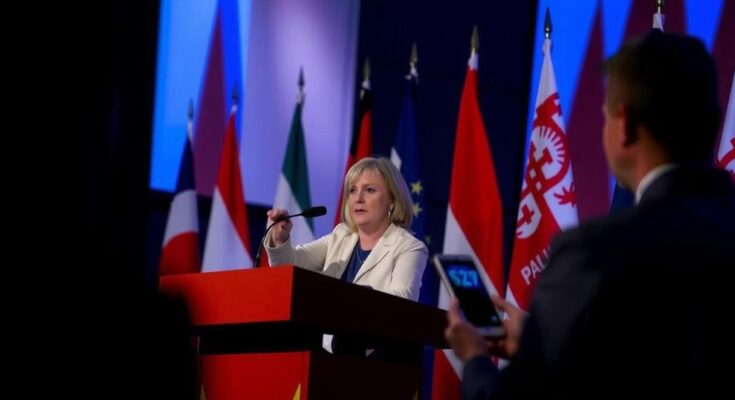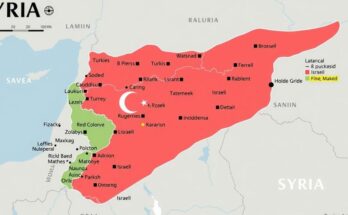Poland is preparing for a crucial presidential election next May, with Prime Minister Donald Tusk’s government facing internal challenges and the looming influence of President Andrzej Duda. Civic Coalition candidate Rafał Trzaskowski aims to consolidate support to ensure Tusk’s administration can implement reforms amid legislative blockages. The focus is shifting towards broader security and economic issues, which may shape the electoral landscape, given Poland’s current geopolitical context.
The Polish government, led by Prime Minister Donald Tusk, is preparing for a pivotal presidential election set for next May. This election comes amidst a year of internal strife within the ruling coalition, namely opposition against President Andrzej Duda, who remains in office with veto power over proposed legislation. Tusk’s administration, which ended the populist Law and Justice (PiS) party’s eight-year governance, faces the challenge of rallying electoral support to avoid legislative gridlock and implement progressive reforms.
Recently, the Civic Coalition announced that the liberal Mayor of Warsaw, Rafał Trzaskowski, would be its candidate in the upcoming vote, after he emerged victorious in a primary against Foreign Minister Radosław Sikorski. Trzaskowski expressed confidence in his mandate to defeat PiS, stating he possesses “a very strong mandate and a lot of energy, determination and courage to beat PiS.” Despite Trzaskowski’s previous defeat to Duda in the 2020 elections under challenging circumstances, the upcoming vote is anticipated to be closely contested, likely resulting in a runoff between him and the PiS candidate, Karol Nawrocki, recently announced by PiS party chair Jarosław Kaczyński.
The first year of Tusk’s government has seen significant yet limited steps towards governance; for instance, the appointment of Adam Bodnar as the new justice minister signaled a shift towards improving rule-of-law conditions, prompting Brussels to release previously frozen funds. However, Tusk’s ambitious agenda has faced delays, primarily due to Duda’s veto power and discord within a diverse coalition struggling to align on progressive issues, particularly abortion rights, which have become a major concern for many citizens.
The Tusk administration aims to amend existing abortion laws, yet previous attempts were thwarted, inciting public outcry regarding legislative inaction. Despite adjustments to the law addressing limited scenarios for abortion allowances, activists express deep disappointment with the diluted proposals that have surfaced. This sentiment echoes among progressive Poles, who feel the government has failed to deliver on critical social issues.
As Poland approaches the election period, the focus appears to be shifting to broader security and economic concerns, likely as a strategic response to regional geopolitical tensions, including the ongoing war in Ukraine. Tusk has sought to align his rhetoric with national security considerations, a move intended to fortify coalition unity ahead of the presidential campaign. Tusk’s emphasis on a broad electoral platform suggests that he intends to navigate a complex landscape of public opinions and priorities to secure a favorable outcome that would reinforce governmental stability and further progressive reforms for Poland.
In December of last year, Donald Tusk took office as Poland’s Prime Minister after the Civic Coalition ousted the populist Law and Justice (PiS) party from power. This transition was celebrated among progressive factions and institutional actors in Europe who were previously concerned about Poland’s strained relations with European bodies under PiS. However, the current political climate is still heavily influenced by President Andrzej Duda, who retains veto power and has hindered Tusk’s legislative initiatives. With a significant presidential election approaching, the stakes are high as Poland navigates internal divides and national issues.
The forthcoming presidential election in Poland represents a watershed moment for Tusk’s coalition government, as it seeks to solidify its mandate amidst substantial challenges. With President Duda poised to continue exerting influence through veto power, Tusk’s administration faces a critical juncture in forging consensus within its diverse coalition. The stark polarizations surrounding key progressive issues, especially abortion and social reforms, raise the urgency of this electoral battle, which many view as pivotal for Poland’s democratic future and governance stability.
Original Source: www.theguardian.com




